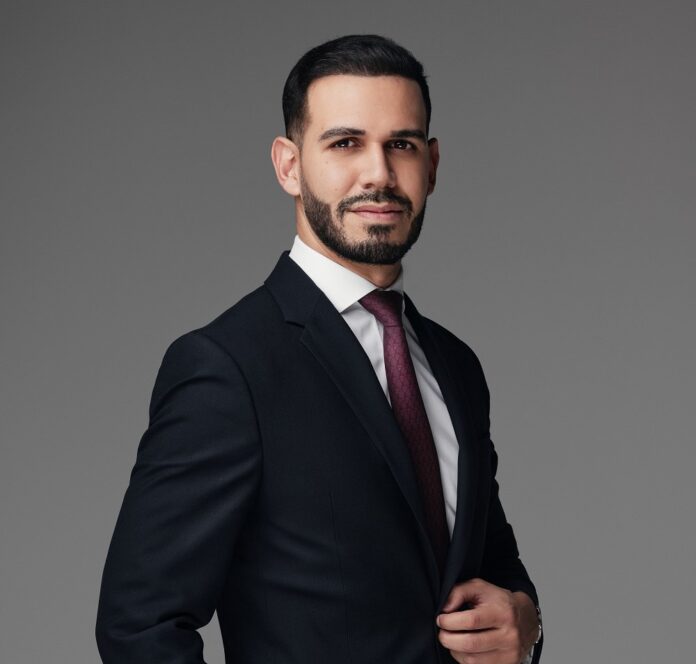In February, the Dubai International Financial Centre (DIFC) launched a ‘Sustaining family business success’ programme with MIT Sloan Executive Education to provide higher education to family businesses leading family enterprise across generations. This follows other regional initiatives and laws to support the smooth transfer of wealth. The DIFC launched the Family Wealth Centre and enacted the Family Arrangements Regulations in early 2023 to support the preservation of legacies across generations and geographies.
The smooth transfer of wealth is a strategic priority across the region. According to wealth analytics firm, Kidbrooke, in the next decade, wealthy families across the Middle East will pass AED 3.67 trillion ($1 trillion) to the next generation. Family wealth and businesses are the backbone of Middle East economies, so their continued success is vital to the regional economy.
However, in the Middle East, many families face their first intergenerational wealth transfer. They will have to navigate this transition against a backdrop of evolving social norms and economic volatility, managing both Sharia and non-Sharia law and international inheritance and tax laws. The impact of personal family relationships and emotional sensitivities are also at play. Such a transfer is complex and fraught with pitfalls.
Clear governance is critical
Establishing clear governance helps manage the intricacies of wealth transfer and reduces the risk of friction.
Recently, the Dubai Centre for Family Businesses launched a ‘Sample Family Constitution’ toolkit, which guides families on how to establish robust governance frameworks and manage family wealth. Family constitutions are documents that outline a family’s values, vision and the rules governing the management of a family estate and businesses. It can include guidelines for decision-making, conflict resolution and set out family roles and responsibilities.
Family councils are also a useful forum for collaboration. They provide a regular opportunity for family members to discuss and resolve family business or estate issues.
Such governance ensures the family house is in order and geared towards long-term sustainability which can prove vital in the process of wealth transfer and contribute to a smooth transition.
Family offices are powerful tools
According to the Capgemini World Wealth Report, 2024, single-family offices, have grown by 200 per cent during the past decade. One-in-two (52 per cent) Ultra-High-Net-Worth Individuals want to establish a family office. Family offices can be powerful tools for wealthy families. They provide a central hub that formalises and professionalises the management of family finances from investments and real estate to recordkeeping, philanthropy and wealth transfer according to the family’s values and vision.
Early succession planning is key
Family-owned businesses generate 60 per cent of the UAE’s Gross Domestic Product. However, only 20 per cent of family businesses in the Middle East last three generations. Philip Marcovici, co-author of Circular Economy Principles for Family Business and Wealth Stewardship believes that families should implement early succession plans to create stability and reassurance to stakeholders. This means family businesses can leverage founders as mentors and for client relationships, while developing the role of younger generations over time. Existing family heads are increasingly seen not just as owners but stewards that should nurture a future-oriented and agile family enterprise in line with the family’s values. And ensure the NextGen have the skills, mindset, knowledge and education needed to lead the family business into the future.
The value of professional expertise
A professional advisor can facilitate and mediate family conversations about legacy planning. According to Capgemini, 65 per cent of High-Net-Worth Individuals reveal biases that influence investment decisions during significant life events such as marriage, divorce, and retirement. And 79 per cent of High-Net-Worth Individuals want guidance from advisors to help manage bias. Professional advisors can draw on sophisticated tools and expert knowledge to help clients. These include behavioural finance and artificial intelligence tools that base decisions on data rather than emotion or bias. Independent advisors can also propose a spectrum of options and illustrate their impact, helping wealthy family members to make informed decisions.
A unique opportunity
The Great Wealth Transfer represents a unique opportunity for wealthy families in the Middle East. However, to survive and thrive, careful planning and a deep understanding of legal, financial, cultural and business considerations will be required. Drawing on both the support of government and advice from professional advisors, who understand regional complexities and cultural nuances, High-Net-Worth Individuals can build a sustainable wealth strategy that bridges generations, secures legacy and fosters financial security for generations to come.











